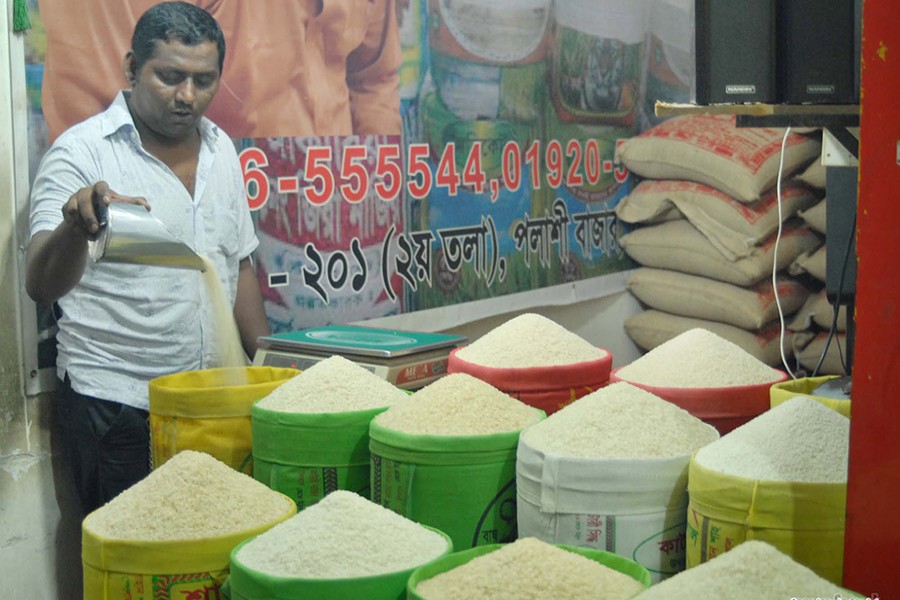People in Bangladesh hope the year 2018 appears today (Monday) as the bellwether of changes for the better despite risks ahead and uncertainties, especially in the banking sector, in the background.
This happens to be the election year here as the polls have to take place sometime early January 2019 or before as per the current constitutional provision. Usually, an election year poses a number of threats and uncertainties in investment and day-to-day life.
And such an ambience is more emphatic in Bangladesh, this time around, because the country's political landscape is fraught with a specter of the deadly political deadlock over the past polls and dilemmas over the upcoming one.
Rebounds in international food and fuel prices may cause a rise in consumer prices, necessitating increased government subsidy, particularly for the petroleum products.
In a blessing in disguise, however, as economists foretell, a rebound in petroleum market -- following the catharsis in the Middle East mayhem -- may boost remittances into Bangladesh as most of its expatriates work in the oil-rich gulf countries.
Some leading economists of the country, talking to The Financial Express on the outlook of the next year, expressed the views fleshed out above while people were preparing to ring in the New Year 2018.
They noticed some positive signs on the horizons for the nation, as also for mankind at large. Bangladesh's export and remittance earnings may rebound, contributing to the balance of payments that now bears significant strains.
Dr Zahid Hussain, the lead economist at the Dhaka office of the World Bank, said the banking sector is very much important for every economic activity, and if the regulatory body does not take proper care of it, there may emerge problems, including lack of public confidence in the banking system.
"We expect the Bangladesh Bank will take its due actions against the least governance in the banking sector."
Dr Hussain lists numerous bitter experiences in the past ahead of the last elections. "If the trend comes back again, then public life and investment will be victimised."
The World Bank economist, however, looks over a bright outlook of the country's export sector as the demand for local knit and other garment products might pick up.
"We have already seen some picks of the exports and it may continue as there has been some progress pertaining to Brexit and European members for next round of meeting," he told the FE.
Dr Mirza Azizul Islam, an economist and former adviser of caretaker government, told the FE that the financial sector was beset with scams and rising non-performing loans. "We must come out from these situations in 2018."
Dr Islam was critical of the low contribution of the private sector to the overall investment.
"The index of ease of doing business Bangladesh dropped a notch, so how we expect the bright prospect of the investment in 2018."
Bangladesh got ranked 177th among 190 economies in the ease-of-doing-business index in the latest World Bank annual ratings. The rank of Bangladesh deteriorated to 177 in 2017 from 176 in 2016.
The economist, however, noted some government moves to overcome the constraints pertaining to investment.
"Will we successfully be able to overcome the problem of easy availability of land for investment and provide other infrastructures to the investors within this year?" he posed the question about the bottlenecks.
Dr Islam, however, sees the flow of private credits picking up in recent times, even higher than the monetary-policy target. But "does it mean that the private investment is picking up in real terms?"
Executive director at the Policy Research Institute (PRI) Dr Ahsan H Mansur pointed out that deposit in the banking sector is dropping due to higher yields from the saving certificates.
"This [low growth in deposit] will swell cost of fund procurement and lead to rise in lending cost for investment," he said about one of the imbalances on the financial front that may be carried over into the new year that dawns today.
Dr Khandker Golam Moazzem, director (research) at the Centre for Policy Dialogue (CPD), holds the hope that if the moves on LNG import and special economic zones are successful, then the investment will pick up.
The policy researcher, however, says the deteriorating balance-of-payments situation could be a great concern for the government in 2018.


